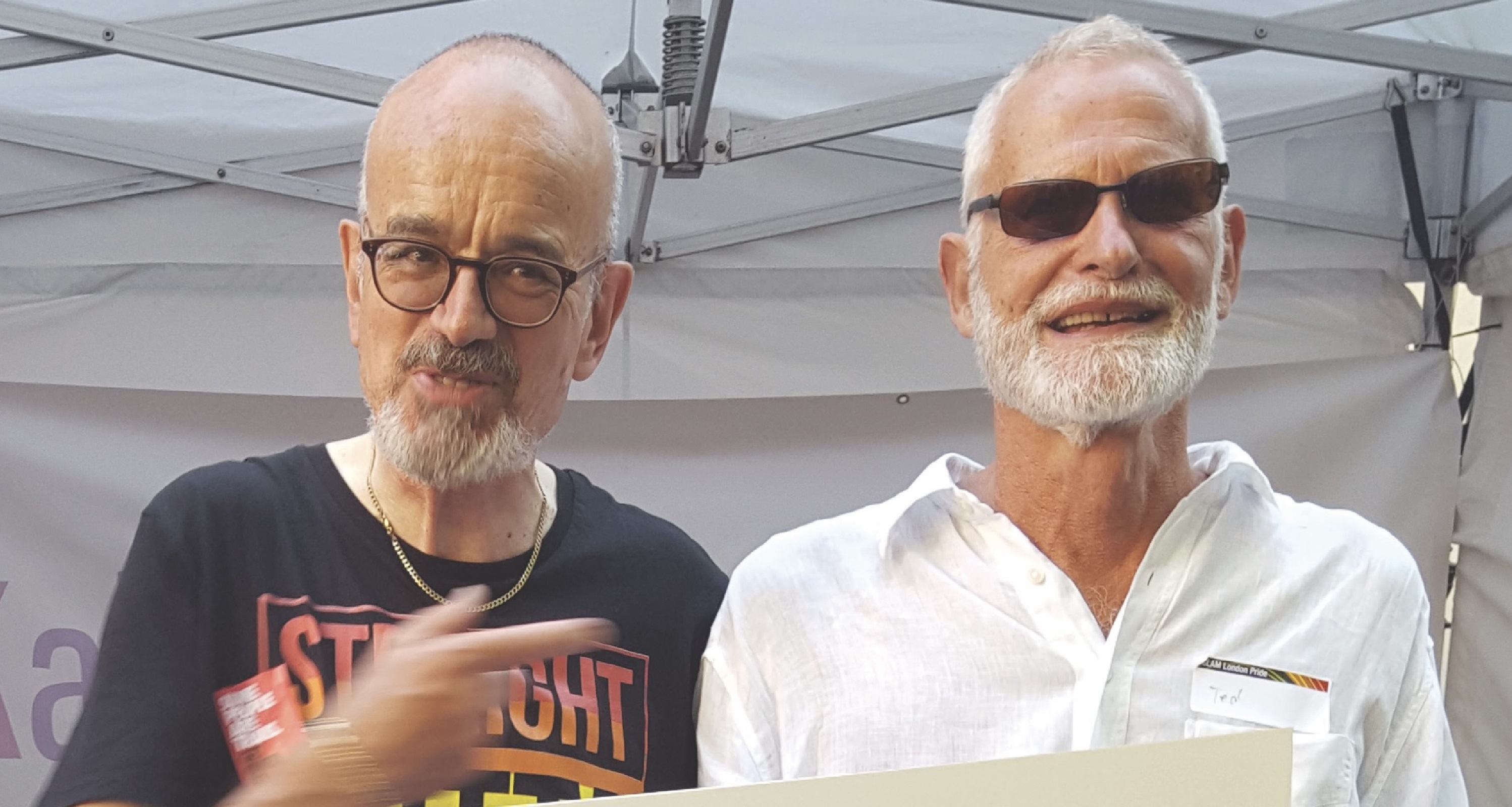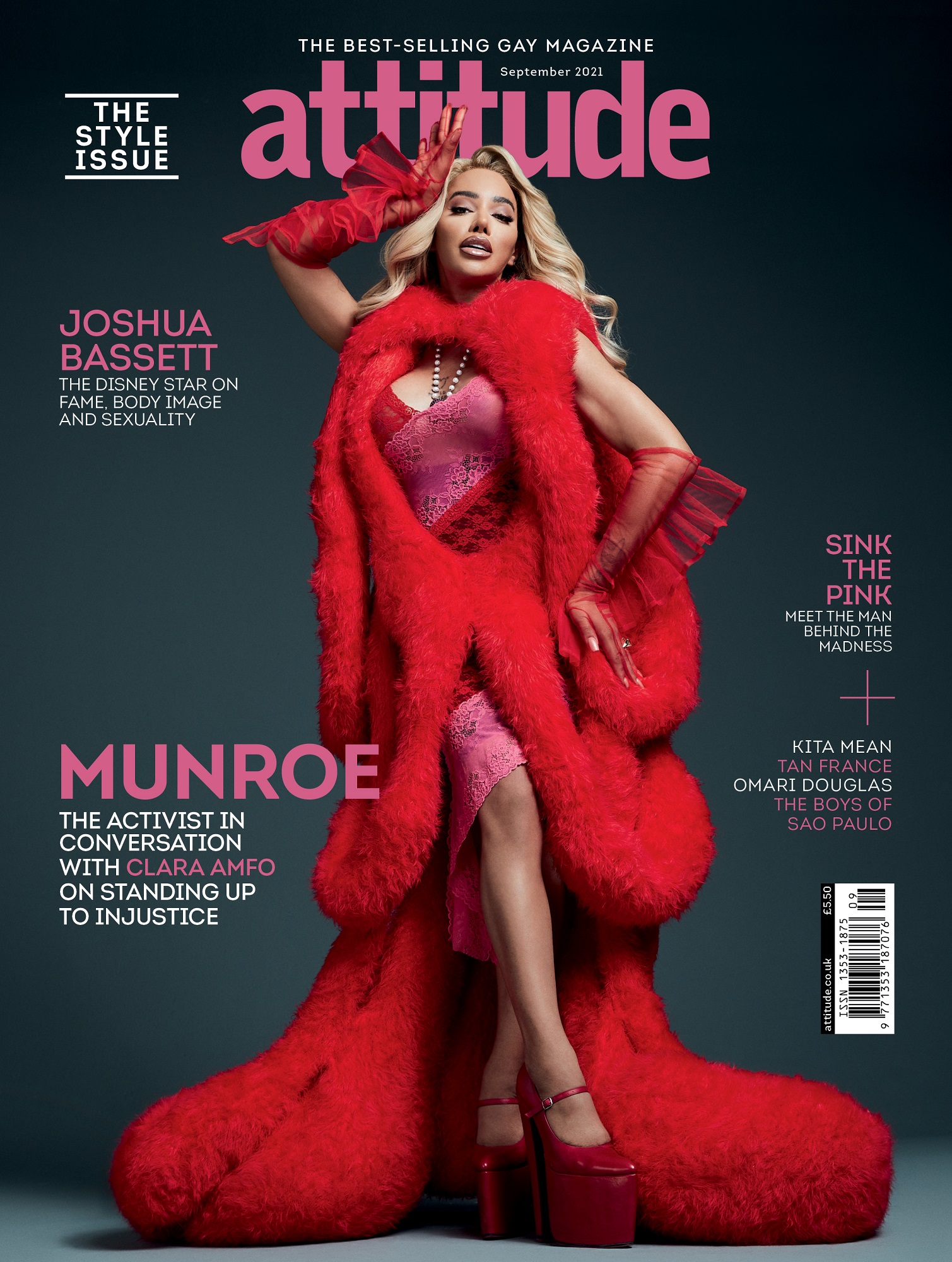‘The Foreign Office asked whether I’d had any homosexual experiences – I lied’
Former diplomat Sir Stephen Wall GCMH LVO (left) shares his experiences as the Foreign Office apologises for its historic ban on LGBTQ staff.

Words: Lerone Clarke-Oliver
In July, the Foreign Office apologised for a historic ban on gay, lesbian and transgender people working in the diplomatic service that lasted for 25 years after homosexuality was decriminalised.
Attitude spoke to four LGBTQ+ Foreign Office diplomats, including Sir Stephen Wall GCMH LVO, the former Permanent Representative to the European Union and British ambassador to Portugal in the Attitude September Style Issue – out now to download and to order globally – to learn about the legacy of the ban and how it impacted their lives and their careers.
Now a retired British diplomat, Sir Stephen is currently chair of the board of the Kaleidoscope Trust — a charity campaigning for LGBT+ rights overseas. Wall sheds some light on what he feels was the catalyst for the ban being lifted.
“In 1968, a year after decriminalisation [of homosexuality], I was asked by the Foreign Office whether I had had any homosexual experiences. I had and told them a story about an experience at school. They laughed and then asked if I had any homosexual tendencies as an adult. I lied, and said, ‘No, I don’t’. I spent much of my life closeted due to these external attitudes.”
Although we celebrate decriminalisation today, in reality for a time it played a huge role in fuelling homophobia in the UK. Wall agrees: “Yes, because the law was so narrowly defined.” Legal sex between two men, in fact, meant two men having sex in a private bedroom, in an otherwise empty house. Two men in a hotel room was still illegal. Even two men in a private home, with someone downstairs, in another room was punishable by law.

Sir Stephen Wall (left) and his late husband Dr Edward (Ted) Sumner)
The Sexual Offences Act 1967 legalised homosexual acts in England and Wales, so why does Wall think the Foreign Office’s ban on LGBTQ+ diplomats was only lifted some 25 years later?
“Attitudes didn’t really change after decriminalisation; it wasn’t until the 1980s, despite Margaret Thatcher and Section 28. In the late 80s, a case came to Patrick Wright, who at the time was Permanent Secretary — a diplomat’s ex-boyfriend had threatened to out him to The Sun newspaper. He decided to come out and get ahead of the story. He lost all of his security privileges and as a result, was reassigned into a different role. Patrick Wright was so moved by this that he was convinced something had to be done. That’s when the ball started rolling.”
Wall continues, “The collapse of the Soviet Union and Eastern European bloc at the end of the 80s also helped as one of the major factors in the Foreign Office’s decision to lift the ban. The Soviet system actively went out to blackmail people. As an example, in Moscow, the accommodation where diplomats lived was run by the state and the people that did the cleaning were provided by the authorities. They’d start by sending a beautiful woman in to do the cleaning — and if that didn’t work, they’d send in a beautiful young man — and if someone fell for either, they’d be blackmailed.”
The idea that queer people are “more susceptible” to blackmail could be viewed as a convenient cover for homophobia. However, in 1962, while working as a
clerk in the British Embassy in Moscow, homosexual civil servant John Vassall was caught in a honey trap sprung by the Soviet Secret Service. He was blackmailed into passing secrets to the Soviet Union, which resulted in 18 years imprisonment for espionage. For gay men like Vassall, homosexuality was still illegal in the UK and punishable by law with a prison sentence.
In a statement Sir Philip Barton, the Permanent Under-Secretary at the Foreign, Commonwealth, and Development Office (FCDO) and Head of the Diplomatic Service, said: “The ban was in place because there was a perception that LGBT people were more susceptible than their straight counterparts to blackmail and, therefore, that they posed a security risk.
“Because of this misguided view, people’s careers were ended, cut short, or stopped before they could even begin. And the diplomatic service undoubtedly deprived itself of some of the UK’s brightest and best talent.”
Read the full feature in the Attitude September Style Issue, out now.
Subscribe in print and get your first three issues for just £1 each, or digitally for just over £1.50 per issue.

